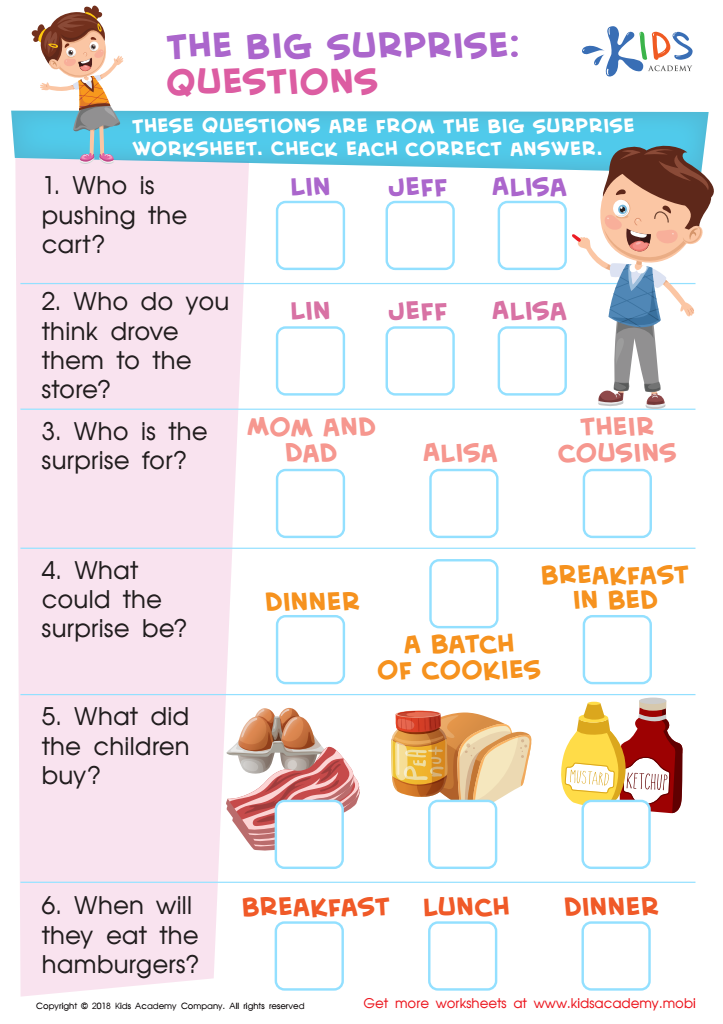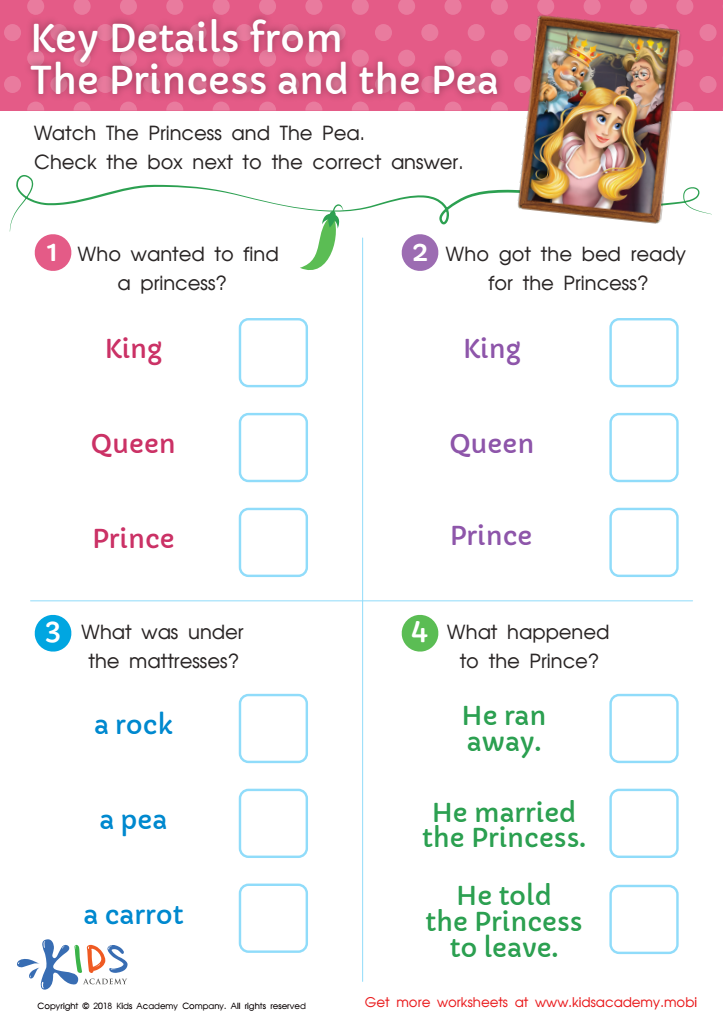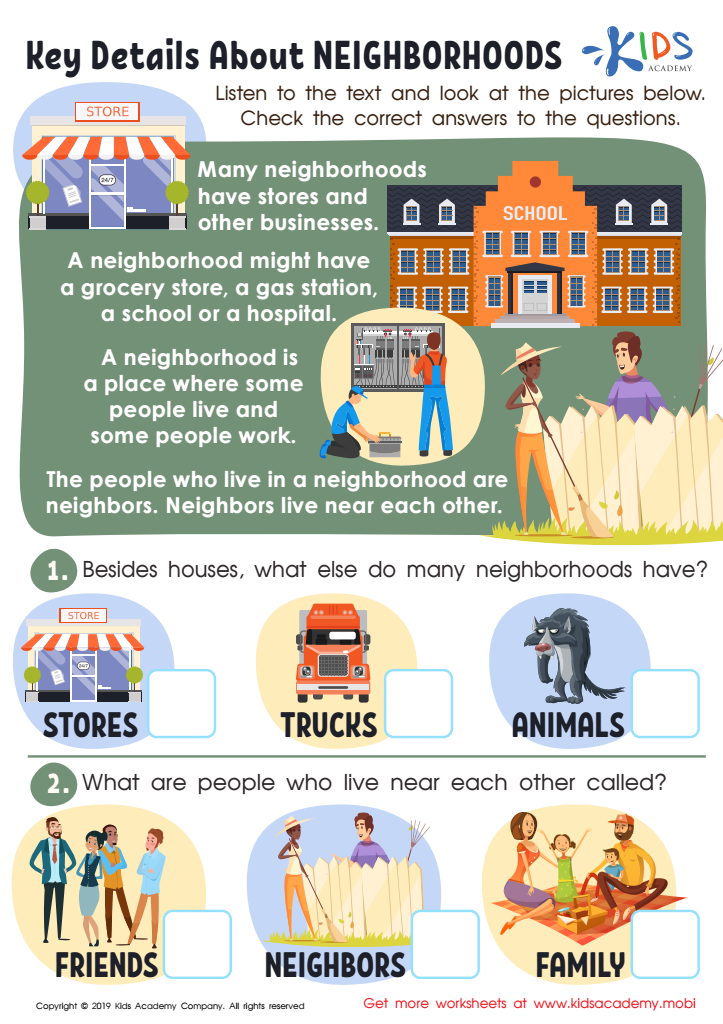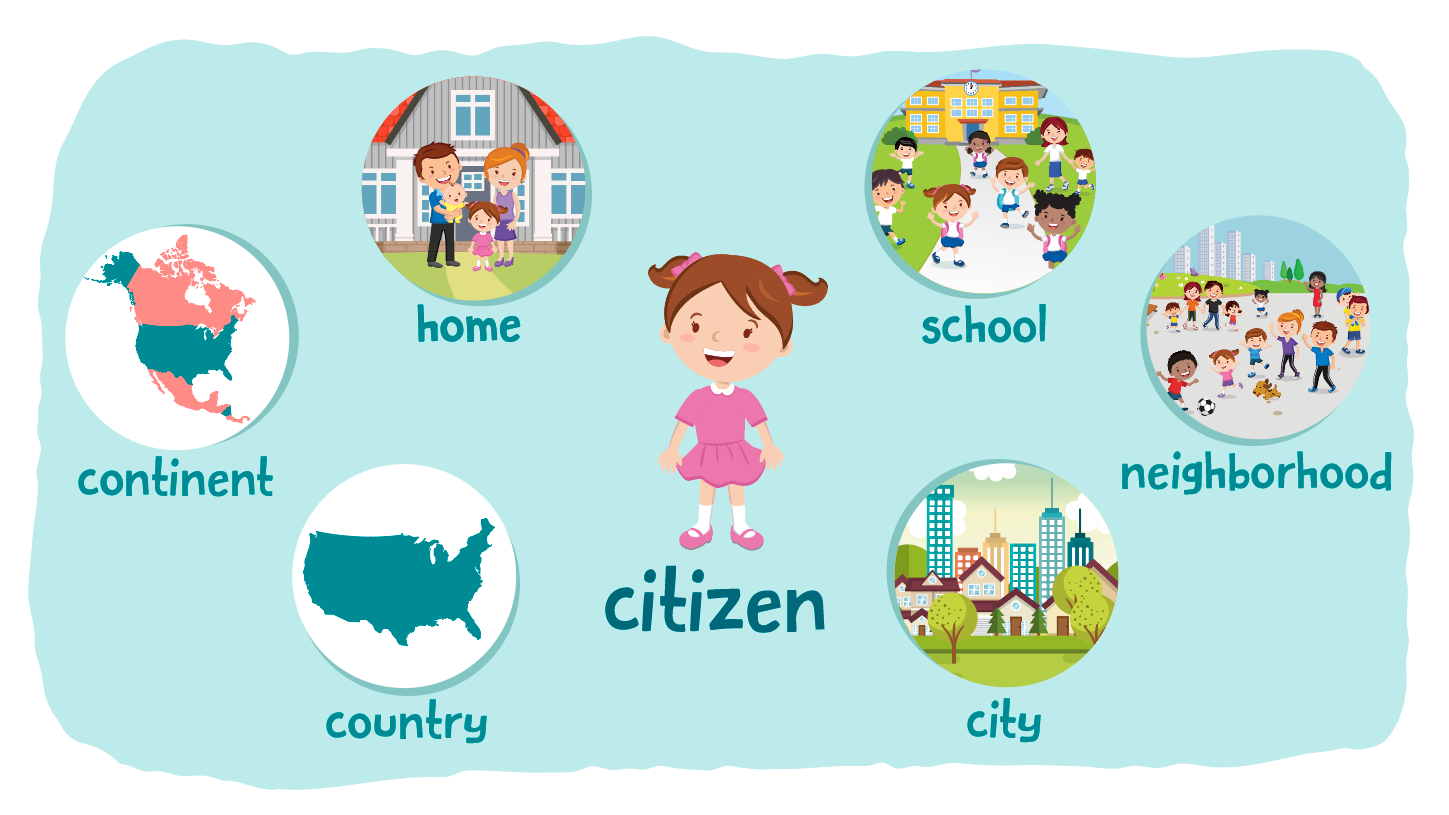Detail identification Normal Worksheets for Ages 7-9
3 filtered results
-
From - To
Explore our engaging Detail Identification Worksheets tailored for children aged 7-9. These printable resources focus on enhancing observational skills and critical thinking through fun activities. Each worksheet presents age-appropriate challenges that encourage young learners to identify specific details within various contexts, fostering mental acuity and attention to detail. Perfect for classroom use or at-home learning, our worksheets support essential skills in reading comprehension, analytical reasoning, and visual discernment. With colorful illustrations and interactive layouts, they create an enjoyable learning experience. Encourage your child’s curiosity and confidence as they navigate each task with ease and enthusiasm. Download and start today!


The Big Surprise: Questions Worksheet


Key Details from the Princess and the Pea Worksheet


Key Details Neighborhoods Worksheet
Detail identification is a critical skill for children aged 7-9, serving as the foundation for their academic and cognitive development. During this stage, children are increasingly engaged in reading comprehension, writing, and problem-solving activities. By focusing on detail identification, parents and teachers can enhance a child's ability to analyze and understand information more deeply.
This skill helps children recognize key elements in texts, which enhances their comprehension and retention of what they read. It enables them to summarize stories accurately, infer meanings, and answer questions with more confidence. In math, detail identification aids in understanding word problems, as children must sift through content to identify relevant information for finding solutions.
Moreover, strong detail identification skills contribute to improved critical thinking and reasoning abilities. They encourage curiosity and independent thought, fostering a love for learning. Children who master this skill are better prepared for more complex tasks in higher grades, where analysis and critical evaluation become essential.
Finally, by involving parents and teachers in the development of these skills, a supportive learning environment is created, improving academic performance and confidence in the child, which ultimately supports their overall growth and success in school and beyond.
 Assign to My Students
Assign to My Students


















